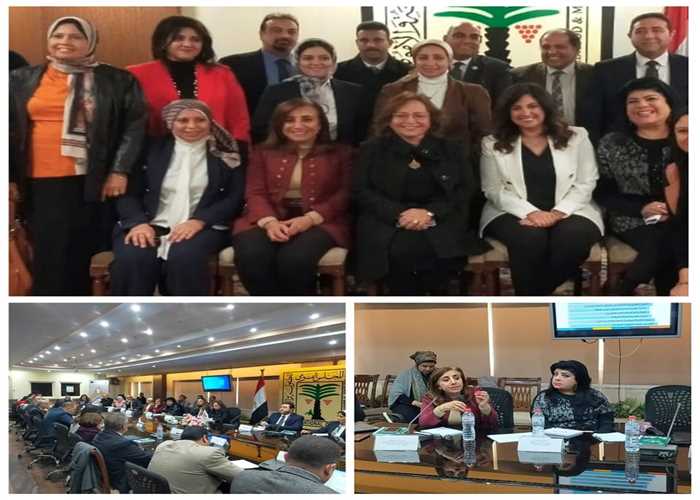
Participation in the session (The Dangers of Internet Use for Children) in cooperation with the National Council for Childhood and Motherhood (NCCM)
Project : Digital Citizenship and Online Protection Initiative
In cooperation with the National Council for Childhood and Motherhood (NCCM), the Digital Citizenship and Online Protection Initiative of the Ministry of Communications and Information Technology (MCIT) participated in the activities of the discussion session entitled "The Dangers of Internet Use for Children", which discussed the importance of taking urgent measures to protect children from the dangers of the Internet and electronic games. During the events, the Advisor to the Minister of Communications and Information Technology for Digital Community Development Hoda Dahrouj stressed MCIT keenness to prepare community members for the digital transformation stage by moving towards more use of Internet tools and applications in all aspects of communication and deals, and the role played by MCIT in seeking to ensure a safe and easy electronic environment. This is in light of the state's interest in issuing the necessary legislations in terms of issuing laws to protect personal data and combating cybercrime to preserve the rights of citizens dealing on the Internet.
In this context, the Ministry has launched the "Digital Citizenship and Protection on the Internet" initiative, and work is underway to launch its electronic platform (Waai. Net) in integration with the concerned institutions and the National Council for Childhood and Motherhood, with the aim of enabling children and adolescents to deal with the risks associated with the digital environment, by raising and building awareness of the basic skills of digital citizenship, with raising awareness of rights, responsibilities and opportunities to live, learn and work in a digital world in which he works and innovates in safe, ethical and legal ways, by possessing the necessary tools for protection in a world Digital Internet.
For her part, Dr. Nevine Othman, Secretary General of the National Council for Childhood and Motherhood, stressed the need to confront the dangers facing children and young people on the Internet in shadow of the technological development that the world is witnessing, pointing to the need to work on this issue urgently, more systematically, interactively and sustainably, while creating a supportive environment for this, by raising awareness among children, parents and caregivers and introducing them to procedures and measures to protect children from modern threats that they may face in the world of the Internet, or exposure to content harmful, or abuse, as well as adequate awareness of the means of reporting these crimes, which are the Child Helpline 16000.
She referred to the initiatives launched by the Council that will enhance the response to violence against children in all its forms, including the "Amani.com" initiative, which aims to protect children and adolescents from the dangers of the Internet and electronic games, and will provide awareness content to parents, caregivers and children themselves, while raising awareness of the availability of the service of reporting violations, exploitation and electronic extortion. Ms. Asmaa Saber, Director of the Digital Citizenship and Online Protection Initiative, presented the objectives and mechanism of work, and the vision on which the work methodology was built in terms of introducing digital citizenship skills and their main axes, which include digital empathy, digital footprint, critical thinking, privacy management and cyberbullying, cybersecurity, and digital citizen identity, in addition to how to deal with the dangers of the Internet and digital threats to which young people are exposed on the Internet and the digital world, introducing ways of prevention, and highlighting the role of parents, and the responsibility of the educational institution to protect against the dangers of the Internet.
At the end of the discussion session, the attendees agreed on the need to raise the level of public awareness of the Child Helpline, introduce the dangers of the Internet and electronic games within its fields, follow up on complaints that reach it, prepare an work plan that includes a campaign on the electronic risks to which the child is exposed, as well as carry out field studies to monitor and evaluate these risks, while benefiting from international experiences in this regard and employing these experiences in line with the Egyptian society. Representatives of all concerned national authorities, a number of members of the House of Representatives and Senate, and UNICEF participated in the discussion session.

 العربية
العربية